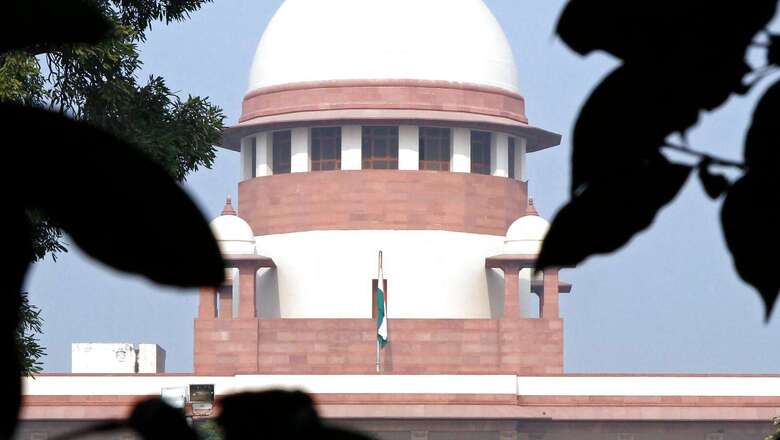
views
Chief Justice of India DY Chandrachud on Monday gave his assurance to lawyers in Gujarat that the Supreme Court collegium will look into their objections against the proposed transfer of Justice Nikhil Kariel, said a report by Bar and Bench.
The lawyers are protesting against the collegium’s decision to transfer Justice Nikhil Kariel of the Gujarat High Court and Justice Abhishek Reddy of the Telangana High Court to the Patna High Court, and acting Chief Justice T Raja of the Madras High Court to the Rajasthan High Court.
The protests were started by the Gujarat High Court Advocates Association, and later Telangana and Madras High Court lawyers also joined. The Gujarat Advocates’ Body made the decision to stop working permanently in protest of Kariel’s transfer order on November 17.
“The CJI [chief justice of India] has assured the representatives of the Bar that the issues raised would be duly examined but strongly conveyed that since such assurance has been given, the advocates should not abstain from work,” the statement said, according to the report.
Amid the controversy, News18 explains what the collegium system is, and how it works.
What is the Collegium System
Appointments to the top court are made by a committee composed of the Chief Justice of India, or CJI, and the four Supreme Court justices with the most seniority. These appointments could take the form of an elevation when justices from the High Court are elevated to the Supreme Court, or they could take the form of direct appointments when qualified lawyers are appointed as judges of the supreme court.
A collegium exists for high courts as well. The chief justice of the court serves as its head. The HC collegium consists of the two judges with the next two highest ranks. The HC collegium, on the other hand, simply suggests candidates for HC positions. A collegium composed of the Chief Justice of India and the SC’s two most senior judges makes the final judgments.
Transfers of HC judges across the nation are also decided by this collegium of the three senior-most SC judges.
What Does the Constitution Say?
According to Article 124, the appointment of Supreme Court judges should be made by the President after consultation with such judges of the High Courts and the Supreme Court as the President may deem necessary.
The CJI is to be consulted in all appointments except his or her own, explains a report by Business Standard.
Judicial Appointments
Following the SP Gupta case from 1981, popularly known as the “First Judges case,” it was recommended that the executive branch should have the most influence over judicial nominations. Twelve years later, in 1993, in the “Second Judges case,” a nine-judge court ruled that the CJI must be given preference in such appointments. In the 1998 Third Judges case, this was reinstated. Since that time, the collegium system has been used to select judges.
Govt Take
The collegium system has not received backing from the central government. The government claims that the opaque nature of the current system is to blame for the large number of judicial vacancies.
It has also drawn criticism for not being sufficiently representative. The highest levels of India’s court are underrepresented by women, Dalits, and STs.
The National Judicial Appointments Commission (NJAC) Act was introduced by the NDA government in 2014 to provide the executive branch a significant role in selecting judges for the higher courts. But in 2015, the Supreme Court overturned it.
The Supreme Court recently agreed to hear a petition against the collegium system of selecting judges for the Supreme Court and the high courts. The petition, in essence, seeks a new mechanism for judges’ appointment. The matter was mentioned by Advocate Mathews J Nedumpara before a Bench comprising CJI, Justice D.Y. Chandrachud, Justice Hima Kohli and Justice J.B. Pardiwala, stated a report by Live Law.
In the plea, Nedumpara and others asked the court to declare that the Collegium system of appointment of judges has become a synonym for nepotism and favoritism, as it has resulted in the denial of fair opportunity in the selection and appointment of judges of the Supreme Court and High Courts to the petitioners and thousands of others, Deccan Herald reported.
The petitioners requested that judges be appointed by notifying vacancies and that the Constitution (Ninety-ninth Amendment) Act, 2014, which a five-judge bench had ruled unconstitutional, be reinstated as they represented the will of the people in a matter that was solely the purview of legislative and executive policy.
Read all the Latest Explainers here

















Comments
0 comment